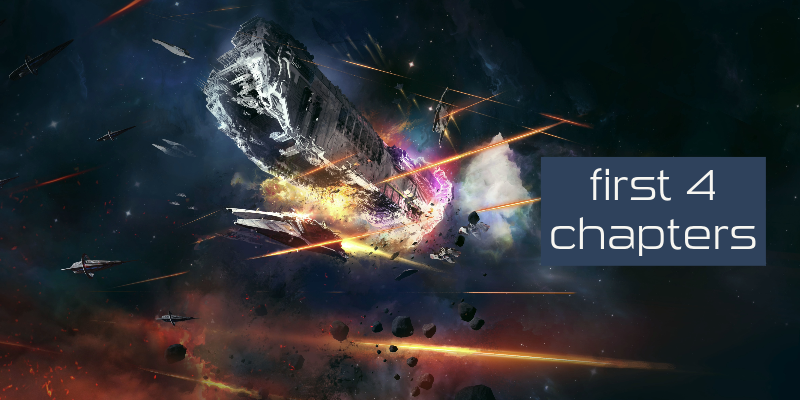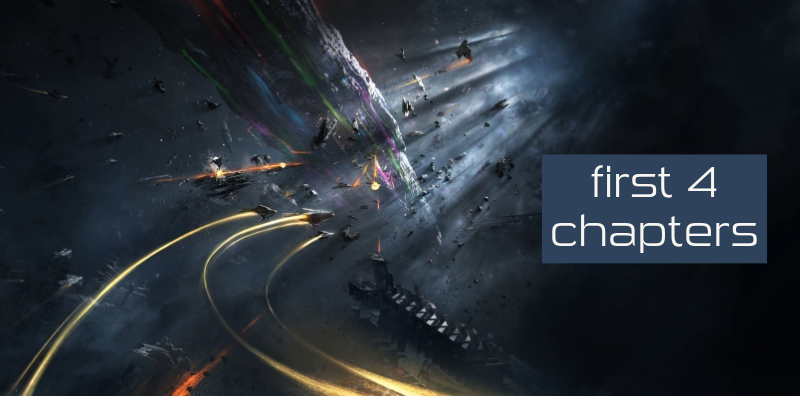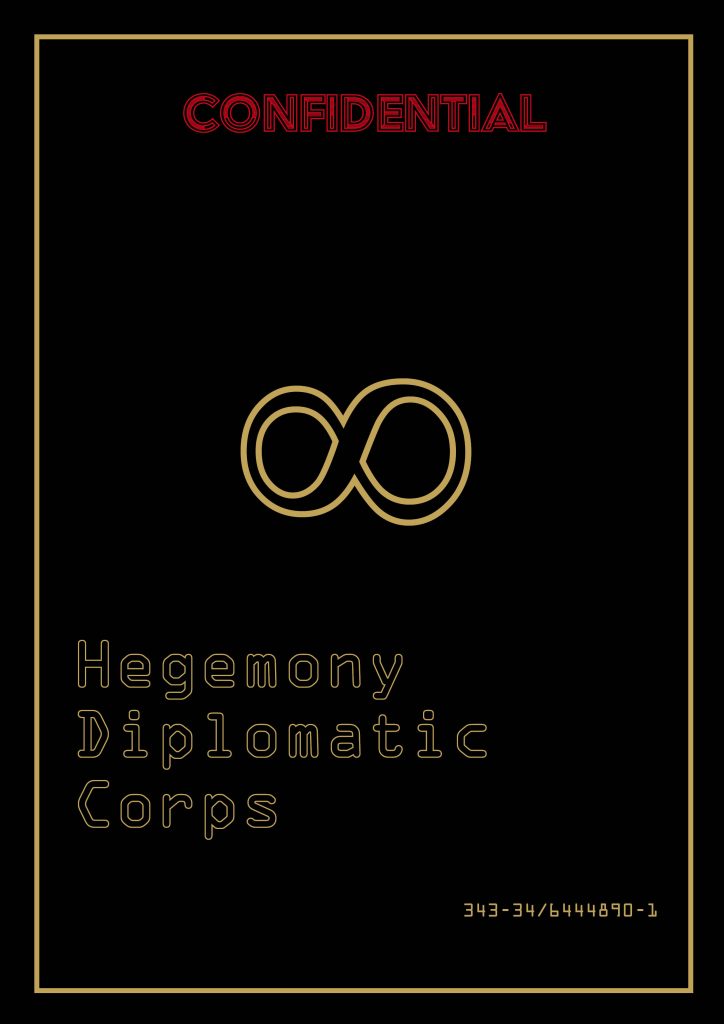Two Outcasts. One goal. Stop Earth.
The Lenticular Series is a galaxy-spanning space opera trilogy that begins with Traitor’s Run.

The complete series out now
A potent SF depiction of humanity victimizing peaceful aliens.
Kirkus Review
Earth’s Hegemony controls the surrounding alien civilisations with ruthless force. Its aim: dominate the galaxy to protect humanity.
On Earth, disgraced pilot Rhees Lowrans is thrust into a job she doesn’t want. She sees firsthand how the Hegemony will sacrifice anything – including her – to keep Earth safe.
In the Lenticular, Udun – one of the empathic Kresz – is on a secret mission when he learns of the Hegemony’s expansion into nearby space. But his warnings are ignored and the Hegemony invades his world and mutilates any Kresz who oppose them.
Can these two outsiders stand against the might of the Hegemony? And will the human race survive if they succeed?
… wild and expansive, and just so utterly out there.
Aurealis Magazine
Extracts and Information (click images to read)
Audio extracts
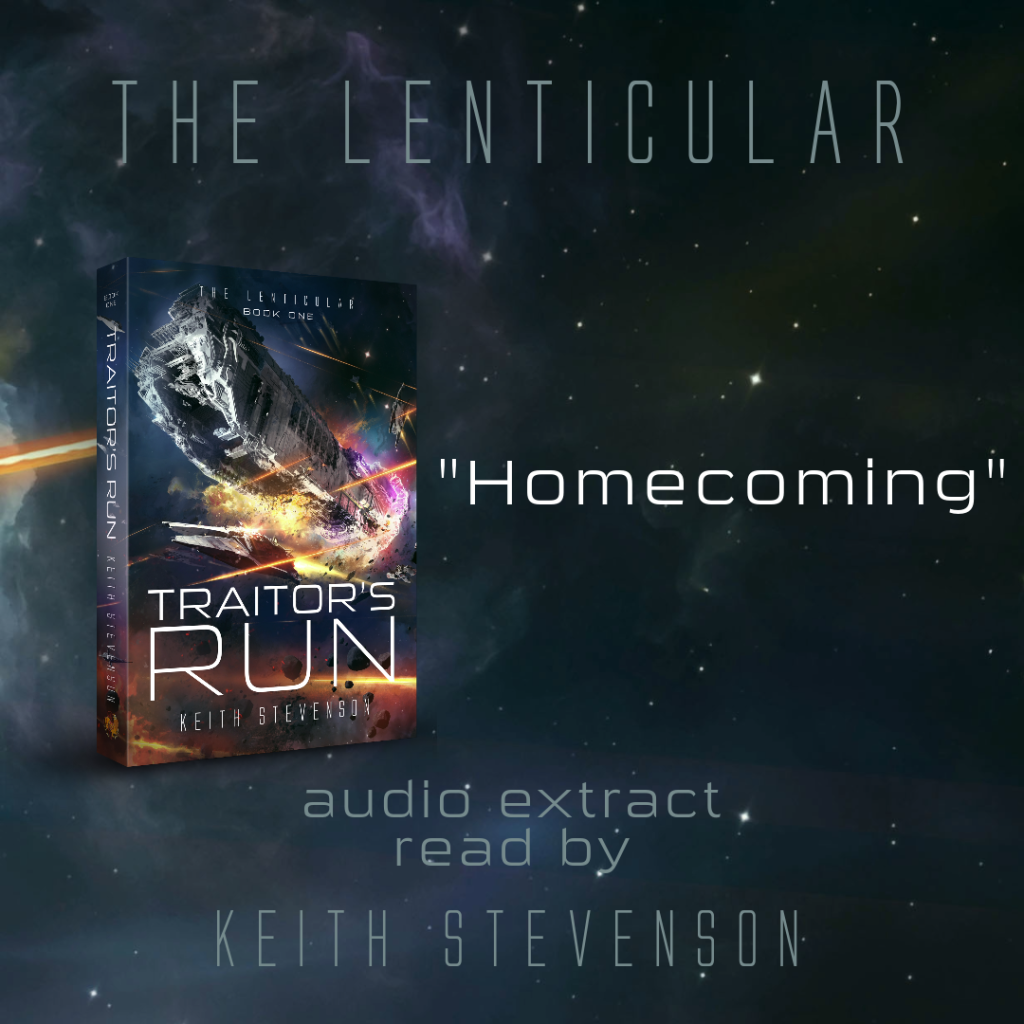
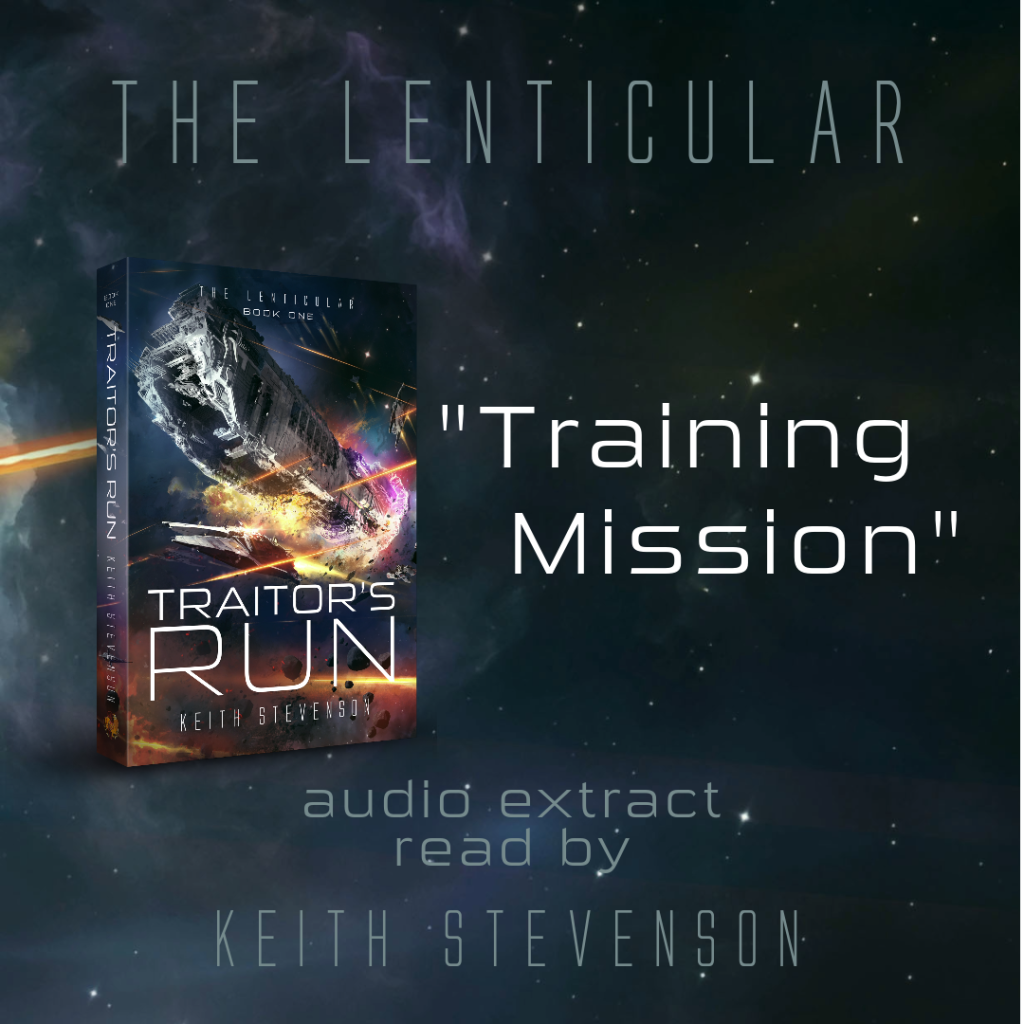
Related blog posts
- What The Lenticular Cost
 I could probably have done this a lot cheaper, but I was determined to make the Lenticular books equal in quality to anything a major publishing house could produce and there was also a degree of experimentation in using the various promotional tools on offer to indie authors, some of which proved to be worth… Read more: What The Lenticular Cost
I could probably have done this a lot cheaper, but I was determined to make the Lenticular books equal in quality to anything a major publishing house could produce and there was also a degree of experimentation in using the various promotional tools on offer to indie authors, some of which proved to be worth… Read more: What The Lenticular Cost - Traitor’s Bargain cover reveal
 Jeff Brown has created another amazing cover for The Lenticular Series Book 2 and you can see it right now! Learn more about Traitor’s Bargain below. Who can a traitor trust?Earth’s Hegemony controls the surrounding alien civilisations with ruthless force. Their aim: dominate the galaxy to protect humanity.Horribly mutilated during the invasion of Homeworld, Udun… Read more: Traitor’s Bargain cover reveal
Jeff Brown has created another amazing cover for The Lenticular Series Book 2 and you can see it right now! Learn more about Traitor’s Bargain below. Who can a traitor trust?Earth’s Hegemony controls the surrounding alien civilisations with ruthless force. Their aim: dominate the galaxy to protect humanity.Horribly mutilated during the invasion of Homeworld, Udun… Read more: Traitor’s Bargain cover reveal - Dream Casting The Lenticular Series
 When Hollywood comes knocking, I’ve already done the hard yards for them in casting the key characters in The Lenticular Series. Learn more about who these characters are and let me know via social media if you have a better casting suggestion. Fleet Cadet Pilot Rhees Lowrans (Florence Pugh) was on track to graduate at… Read more: Dream Casting The Lenticular Series
When Hollywood comes knocking, I’ve already done the hard yards for them in casting the key characters in The Lenticular Series. Learn more about who these characters are and let me know via social media if you have a better casting suggestion. Fleet Cadet Pilot Rhees Lowrans (Florence Pugh) was on track to graduate at… Read more: Dream Casting The Lenticular Series - Aliens of The Lenticular Series
 The part of space known as The Lenticular is home to twelve sentient species, but The Lenticular Series of books also focuses on other non-Lenticular aliens, including those within the Hegemony’s borders (and in particular in Cygnus Sector), as well as aliens beyond the Hegemony’s sphere of influence. Lenticular Space sentient species Aphsans – The… Read more: Aliens of The Lenticular Series
The part of space known as The Lenticular is home to twelve sentient species, but The Lenticular Series of books also focuses on other non-Lenticular aliens, including those within the Hegemony’s borders (and in particular in Cygnus Sector), as well as aliens beyond the Hegemony’s sphere of influence. Lenticular Space sentient species Aphsans – The… Read more: Aliens of The Lenticular Series - How to read Traitor’s Run on Netgalley
 Traitor’s Run is now available as an Advanced Review Copy on Netgalley. I’ve had a couple of friends query how to access and read the book. It’s fairly easy but there are a couple of tricks if you’re unfamiliar with ebooks or Netgalley. So this guide explains how to get reading as quickly as possible.… Read more: How to read Traitor’s Run on Netgalley
Traitor’s Run is now available as an Advanced Review Copy on Netgalley. I’ve had a couple of friends query how to access and read the book. It’s fairly easy but there are a couple of tricks if you’re unfamiliar with ebooks or Netgalley. So this guide explains how to get reading as quickly as possible.… Read more: How to read Traitor’s Run on Netgalley - Knowing the alien
 This is Udun. He’s a Kresz from a part of space called The Lenticular, which holds many alien civilisations. He stands 2.4m tall (normal for his caste, but shorter than most Kresz females and certainly shorter than Defender caste Kresz) and has both an endoskeleton and a chitinous exoskeleton like laminate armour. His body plan… Read more: Knowing the alien
This is Udun. He’s a Kresz from a part of space called The Lenticular, which holds many alien civilisations. He stands 2.4m tall (normal for his caste, but shorter than most Kresz females and certainly shorter than Defender caste Kresz) and has both an endoskeleton and a chitinous exoskeleton like laminate armour. His body plan… Read more: Knowing the alien - The Lenticular – Production Diary April
 There’s comes a point in any endeavour where you think you’ve taken on too much. I’m never going to get to the top of that mountain. I’m never going to pack the kitchen into the available boxes in time. I decided to finalise and publish 3 books in 18 months. I must have been mad!… Read more: The Lenticular – Production Diary April
There’s comes a point in any endeavour where you think you’ve taken on too much. I’m never going to get to the top of that mountain. I’m never going to pack the kitchen into the available boxes in time. I decided to finalise and publish 3 books in 18 months. I must have been mad!… Read more: The Lenticular – Production Diary April - Creating the print book – Traitor’s Run
 Deciding to do just about everything in the production process for The Lenticular means the months since January have been very busy. Of course it all starts with the text, which my editor Nicola O’Shea has done a number of passes on at a structural level and which then received a final copy edit. While… Read more: Creating the print book – Traitor’s Run
Deciding to do just about everything in the production process for The Lenticular means the months since January have been very busy. Of course it all starts with the text, which my editor Nicola O’Shea has done a number of passes on at a structural level and which then received a final copy edit. While… Read more: Creating the print book – Traitor’s Run - Publication Log – January
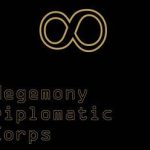 Now that the print edition of Horizon is well and truly out in the world, my focus is turning to the main event, which will take up pretty much the rest of this year: preparation and launch of book 1 of The Lenticular Series – Traitor’s Run. Book 1 is slated for publication on 1… Read more: Publication Log – January
Now that the print edition of Horizon is well and truly out in the world, my focus is turning to the main event, which will take up pretty much the rest of this year: preparation and launch of book 1 of The Lenticular Series – Traitor’s Run. Book 1 is slated for publication on 1… Read more: Publication Log – January - Society from mythology
 Any decent worldbuilding, particularly where it posits an imaginary alien species, needs to delve into the social structure and belief system that exists. When I considered creating ‘the alien’, I knew I couldn’t go ‘too alien’. There are – no doubt – aliens out there in the vastness of space that we will never understand… Read more: Society from mythology
Any decent worldbuilding, particularly where it posits an imaginary alien species, needs to delve into the social structure and belief system that exists. When I considered creating ‘the alien’, I knew I couldn’t go ‘too alien’. There are – no doubt – aliens out there in the vastness of space that we will never understand… Read more: Society from mythology - Themes
 One of the things I’ve realised in working through the development of this story cycle is just how malleable plot is. The origins of the Lenticular books led me to write a bunch of short stories – a serial in fact – published on the Nuketown website in the late Nineties. I look at those stories now… Read more: Themes
One of the things I’ve realised in working through the development of this story cycle is just how malleable plot is. The origins of the Lenticular books led me to write a bunch of short stories – a serial in fact – published on the Nuketown website in the late Nineties. I look at those stories now… Read more: Themes - Origins
 Way back in the 20th Century, 1996 to be exact, I was on a tram, riding home from the Aurealis Awards ceremony that was held that year in Justin Ackroyd’s Slow Glass bookshop in Swanston Street (yes, it was THAT long ago) when I had a flash of an image. An alien held down on a bench… Read more: Origins
Way back in the 20th Century, 1996 to be exact, I was on a tram, riding home from the Aurealis Awards ceremony that was held that year in Justin Ackroyd’s Slow Glass bookshop in Swanston Street (yes, it was THAT long ago) when I had a flash of an image. An alien held down on a bench… Read more: Origins - The Art of Worldbuilding
 For me, the key to ‘worldbuilding’ is what your characters take for granted.” Ian MacDonald, author of Luna and Brasyl On the face of it, worldbuilding is closely associated with science fiction and fantasy. Think of the millennia-spanning mythology of elves, dwarves, ents and human tribes that informs JRR Tolkien’s The Lord of the Rings books, or Iain M Banks’s… Read more: The Art of Worldbuilding
For me, the key to ‘worldbuilding’ is what your characters take for granted.” Ian MacDonald, author of Luna and Brasyl On the face of it, worldbuilding is closely associated with science fiction and fantasy. Think of the millennia-spanning mythology of elves, dwarves, ents and human tribes that informs JRR Tolkien’s The Lord of the Rings books, or Iain M Banks’s… Read more: The Art of Worldbuilding - Writing and Pinterest
 Up until about six months ago I’d only used Pinterest to show scans of 20th-century science fiction book covers, many of which I’d had since I was an early teenager, and as another channel for promoting my book reviews and my first novel, Horizon. But as I’m creating the many alien beings, environments and spacecraft for the Lenticular Series… Read more: Writing and Pinterest
Up until about six months ago I’d only used Pinterest to show scans of 20th-century science fiction book covers, many of which I’d had since I was an early teenager, and as another channel for promoting my book reviews and my first novel, Horizon. But as I’m creating the many alien beings, environments and spacecraft for the Lenticular Series… Read more: Writing and Pinterest
Reviews
Kirkus Reviews
A potent SF depiction of humanity victimizing peaceful aliens.
An Earth-based space empire exploits and enslaves Milky Way civilizations for its own selfish benefit while a crablike alien refugee and an outcast human warrior try to oppose its latest crimes.
Stevenson’s far-future SF series opener focuses on evil space invaders who happen to be human—an order called the Hegemony, which arose in the aftermath of a traumatic but victorious (though scarcely described in any detail) interplanetary war.
Hegemony policy assures the safety of humankind by incorporating spacegoing alien civilizations in what is supposedly a protective alliance akin to the storied Federation of the Star Trek franchise. In fact, the oppressive arrangement subjugates and weakens the Hegemony’s coalition planets, making them little more than Earth vassals and underclasses.
Rhees Lowrans, an eager human fighter pilot for the Hegemony, accidentally causes the death of a close comrade in a training exercise and is punished with a transfer to the much-disliked intelligence branch. There, she learns inside dirt about a mystery attack on nonhuman colonies in which Hegemony military might did nothing to avert the slaughter of 13 billion aliens.
In a parallel narrative (barely intersecting in this installment), Udun is a rare, space-traveling member of the Kresz—intelligent humanoid arthropods (“like a cross between a crab and a lobster but with only two arms and two legs, though these were strangely jointed and much longer than a human’s”) with an isolationist culture.
Udun’s unheard-of voyages beyond Kresz territory give him ominous clues of an approaching crisis, but he is unprepared for the ruthless barbarism of the Hegemony. The captivating story ends at a turning point, and readers will eagerly look forward to the sequel.
The author’s gift for xenofiction matches that of genre grandmasters like Hal Clement, Larry Niven, and C.J. Cherryh. Stevenson gets under the alien skins (or carapaces) and unique emotional makeup of the Kresz characters to the point that readers begin to see the ultimately amoral Homo sapiens as grotesque and “other” as any bug-eyed monster on the cover of yesteryear’s SF pulps. Comparisons between the Hegemony’s malevolence and real-world developments should be evident even without the words Homeland Security ever being deployed.
Aurealis Magazine
Review by Lewis Fisher
Traitor’s Run
It’s been a long time since I’ve come across a space opera this exciting, this wild and expansive, and just so utterly out there. Traitor’s Run, Stevenson’s first in The Lenticular series, creates a galactic set like no others—we are not alone, and humanity will subjugate by any means necessary.
Our main characters—one human, one a telepathic species of pacifists, are original, funny and compelling, and wrestle with what it means to be part of a society, and how that society can, and should function when faced with an entire universe.
This novel sets up a lot of what’s to come with the remaining two titles in the trilogy. Each scene and plot point furthers the story, raising questions that will, no doubt, find answers. It also raises questions about the way we might end up if we ever migrate to space: are we doomed to be a violent species, as our storied and bloodied history on Earth reflects, or do we have the opportunity to move beyond this?
What’s most intriguing about this story are the non-human characters. It’s a well-established trait within science fiction that humans will either become nefarious or altruistic, often with shades of grey between, but often non-human species aren’t given this treatment. Our Kresz protagonist shows that machinations cannot and will not be limited to the human race and offers a look at what it would be like to encounter homo sapiens out there in the cold dark.
You’ll race through the book to spend more time with these characters, to know and understand more about them, and might feel a pang of sadness when the reading is finished.
This was my first ever book by Keith Stevenson and, if this is anything to go by, I’m very excited to dive into his back catalogue and escape Earth, even if only for a little while.
Traitor’s Bargain
Traitor’s Run, the first book in The Lenticular series, was an unexpected space opera delight that veered away from the science fiction gravitation towards solarpunk or dystopian science fiction over the past few years. Second book Traitor’s Bargain is a welcome return to the world of The Lenticular that Stevenson has created, continuing this joy.
Now free from large parts of the worldbuilding that often characterises the first book in a trilogy, we pivot to a political thriller, and visit the old stomping ground of Earth. Much transformed for better or worse, depending on whose side you take in the conflict, Traitor’s Bargain is an intertwined paranoid thriller. Characters old and new straddle the line of trust and honesty. Nok is a particular highlight, and we also see the evolution of characters Rhees and Udun, now coming
into their roles as freedom fighters and potential saviours of their respective peoples, and of each other.
While a lot of the novel’s antagonists are ‘off-camera’, so to speak, in this book, the threat they pose is becoming more and more apparent. Once again Stevenson delivers on a unique and fresh take on science fiction and the many worlds contained within, and this reviewer is eagerly looking forward to seeing how this trilogy ends in Traitor’s War.
Goodreads
Trent Jamieson, award-winning author of The Stone Road
Keith brings energy and invention to one of my favourite genres. Space Opera done right. Intelligent, thrilling with heart.
Dirk Strasser, author of Conquist
Keith Stevenson throws us headfirst into an epic galactic opera in Traitor’s Run, kicking off The Lenticular Trilogy. Picture a universe jam-packed with exotic alien cultures, space trips, and a whole lot of political drama. Right at the centre? The Hegemony – humans playing both heroes and baddies. Dive deep, and you’ve got Rhees Lowrans, a pilot with some heavy baggage, and Udun, this wild empathic lobster-like alien from the Kresz, trying to figure out the massive space politics game.
The beauty of it? It isn’t just about strange planets or flashy space wars. Stevenson gives each alien world its own soul and backstory. We see everything through Rhees and Udun’s eyes – the good, the bad, and the cosmic. The plot is huge, but the two main characters keep things grounded. Their stories pack an emotional punch.
So, if you’re into epic space tales with a fresh spin, Traitor’s Run should be your next binge. It’s got drama, heart, and makes you think twice about where humans fit in the universe. And there’s more to come in this series! I can’t wait!
Nathan Burrage, author of The Hidden Keystone
Traitor’s Run is the first instalment in The Lenticular Trilogy by Australian author Keith Stevenson, and it has all the trappings of science fiction that you’d expect; a vast galactic canvas with a myriad of extremely well-drawn alien societies, interstellar travel, and plenty of political machinations. The central administration of humanity’s Hegemony is fixated on controlling all sentient species it encounters, although not without reason, as we learn early on that humanity was almost wiped out in a war with another species at some point in the past.
The story is told from two points of view: Rhees Lowrans is a Fleet pilot whose miscalculation during an exercise costs the life of her lover. Dismissed from Fleet in disgrace, her father’s connections gift her a second chance in the Hegemony Diplomatic Corps (HDC). The HDC is part intelligence agency, part black ops and humanity’s first line of defence against extraterrestrial threats. Rhees soon comes to despise Troels Volmar, the Comptroller of HDC and his ‘ends justifies the means’ approach to diplomacy.
The second viewpoint is from Udun, an alien from the Kresz homeworld. (Picture a lobster in the shape of a very large human with a cobra-like hood that can engorge from the back of its neck and you get the idea.) The Kresz are a highly empathetic species, which means they sense the emotions of other Kresz nearby and participate in a world mind whilst retaining their individuality. The Kresz are an insular species and want nothing to do with the Hegemony, but the HDC has other ideas.
Udun is unlike most Kresz in that he is interested in other species and yearns to spend more time off the Kresz homeworld. And here we encounter one of the key themes in Traitor’s Run; both Rhees and Udun are ostracised for not conforming to the expectations of their societies. While their respective journeys do not intersect – at least not in this instalment – there are obvious parallels including the inevitable collision between independent thinkers and heavy-handed regimes. Thought-provoking material indeed.
I find some science fiction can be difficult to engage with, particularly where high science concepts dominate or the canvas is so vast it inevitably comes at the expense of characterisation. However, I didn’t find that with Traitor’s Run at all. Stevenson’s pacing is brisk and his tendency towards a modest level of description and short paragraphs worked well as I read the novel on my Kindle.
Carol Ryles, award-winning author of The Eternal Machine
The Hegemony is a human-led federation of worlds that safeguards its dominance by subjugating potential opponents. When the insular Kresz – a crustacean/insectile humanoid species – refuses to join, the Hegemony treats them as a threat. The subsequent drama unfolds from mostly two points of view: Rhees Lowrans, a talented albeit disgraced human pilot who blames herself for the death of a loved one; and Udun, a Kresz who prefers to live offworld, a rare trait amongst his species. As each is drawn into separate conflicts – ones that threaten their lives and challenge their beliefs – they are forced to make choices that were previously unthinkable.
There is much to like about this novel, including the representations of good and evil in both humans and aliens, and also the strong female characters working in institutions that, thus far, appear to be dominated by males. The novel’s strengths lie with Stevenson’s thoughtful and intelligent depictions of various aliens and their cultures, particularly the worldview, religion and social mores of the empathic Kresz. The narrative voices are successfully character specific, though can be dry at times and often remained so during weapon-to-weapon conflict and scenes of emotional turmoil. Readers looking for classic space opera with a twist will enjoy this novel. I will certainly be looking out for Book 2.




